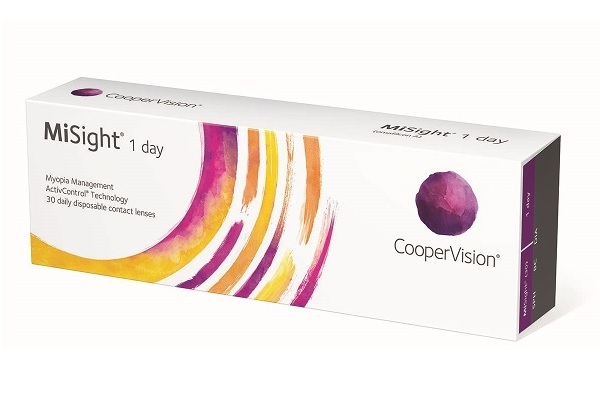- C. Valenciana. 90% of cases of glaucoma blindness can be prevented with annual reviews
The United States Food and Drug Administration ( FDA ) has approved the first contact lens indicated to delay the progression of myopia in children between 8 and 12 years of age at the start of treatment. These soft, disposable and single-use lenses , commercially called MiSight , are not designed to be worn overnight.
Myopia is the most common cause of correctable visual impairment worldwide. It occurs when the eye grows too much from front to back (axial length). Instead of focusing images on the retina, the images focus on a point in front of the retina. As a result, people with myopia have good near vision but poor distance vision, which can be corrected, however, with the use of glasses or contact lenses.
Myopia is common in children and tends to increase as they grow. If a person develops severe myopia as a child, he may be susceptible to other eye problems such as early cataracts or retinal detachment during adulthood.
When placed in the eye, a part of the MiSight lenses, developed by the CooperVision company, corrects the refractive error to improve distance vision in myopic eyes, similar to a standard corrective lens. In addition, concentric peripheral rings in the lens focus part of the light in front of the retina (the back of the eye). It is believed that this reduces the stimulus that causes the progression of myopia.
FDA approval is based on data obtained from a prospective clinical trial at four clinical centers and real-world tests. Its safety and efficacy was studied in a three-year randomized controlled clinical trial with 135 children from 8 to 12 years of age at the beginning of treatment using MiSight or a conventional soft lens.
Throughout the three-year period, the progression of myopia of those who used MiSight was less than that of those who wore conventional soft contact lenses. In addition, people who used these new lenses had fewer changes in the axial length of the eyeball at each annual review. During the course of the trial, there were no serious ocular adverse events in either arm of the study.
According to the criteria of The Trust Project
Know more- Health
- Science and Health
Research The damage caused by chemo in DNA
The next world "The day will come when chemotherapy is no longer necessary"
Boticaria GarcíaAll the lies of the anti-vaccines: they are neither toxic nor cause autism

